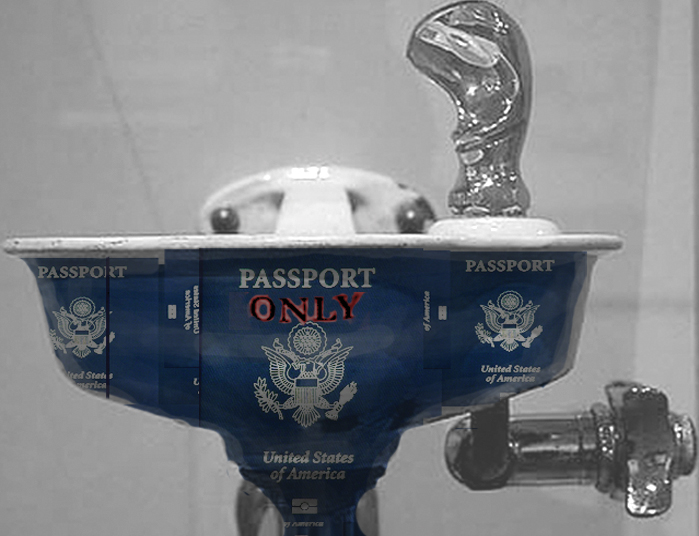Needing citizenship for jobs unfair

Photo illustration
By Swati Padmanabhan
Feb. 11, 2011 12:00 a.m.
I happily basked in the knowledge of a secure future as I read my admission letter.
“By choosing UCLA, you choose to study at a world-class public research university with … professors whose teaching and mentorship will help you join the next generation of America’s academic leaders,” it read. All those years of being a prim and proper student had paid off as I now saw the portal to my dream job open wide.
But it was at a career fair that I realized that my dream company had ruled me out the day I was born. I am Indian, and they do not accept non-U.S. citizens.
In fact, a majority of the companies that attended the past two UCLA career fairs required U.S. citizenship as an eligibility criterion.
The number of companies that accept international students is very small, said Vijay Dhir, dean of the UCLA Henry Samueli School of Engineering and Applied Science. Many companies receive funding from the federal government and deal with classified information, which they say they cannot share with noncitizens, he added. It is especially true of defense, aerospace and research organizations.
It is the utter lack of any logic that makes the policy frustrating. If I am a good engineer, why does it matter if I am American or not?
Once I graduate from UCLA, employers should not view me as a foreigner. I am getting the same education as my domestic classmates, and companies should look at my skill set, rather than my nationality, to deem me worthy of a position.
International students pay much higher student fees than their domestic counterparts. It is cruel to send them back to their home countries knowing that they have invested so heavily in education.
My tuition is $9,000 per quarter. Assuming five quarters for completion of my degree, this amounts to $45,000, which translates to about 2 million rupees. If I had to work in India after my education, it would take me all my life simply to recover my parents’ investment.
Does the U.S. only want international students to fill its universities’ dried up coffers and be able to boast of multiculturalism on its campuses?
President Barack Obama addressed this issue in his State of the Union address, calling for a reform to “stop expelling talented, responsible young people who could be staffing America’s research labs or starting a new business, who could be further enriching this nation.”
According to the U.S. Citizenship and Immigration Services website, a student with a bachelor’s or higher degree from a U.S. university qualifies for an H1-B visa status, which is reserved for highly skilled and educated workers.
But there is a cap on the number of such visas issued annually, which prevents the government from meeting the rising demand for them. It is this cap that makes it hard for international students to get jobs in U.S. companies.
While there is no denying that some companies accept international students too, I strongly feel that making a career choice should not be about choosing the best out of the available options. It should be about what one loves doing and what one is best at.
Forcing people to compromise on the work they want to do simply breeds more dissatisfaction in the world. Reject me on grounds of an inadequate knowledge base, and I will graciously accept it as fair criticism, happy to know exactly where I could improve to get what I want. But I can only wring my hands in frustration when I am rejected for my identity.
Adding to the ludicrousness of the rule is that citizenship is not something you can only be born with.
I can always obtain U.S. citizenship by staying in the country for a certain period of time and clearing a test. I do not become any more capable than I was before the process, but on paper I get tagged as a U.S. citizen, and somehow that makes me more trustworthy and valuable to a company than I was earlier.
Of course, the U.S. need not care about my future. I am not a citizen and hence have no claim to rights.
But as a UCLA student, I can certainly demand that companies assess my competence in a job, rather than frowning upon a mere tag based on one of the many boundaries that human beings create all the time.
Think international students deserve jobs too? E-mail Swati at
[email protected]. Send general comments to [email protected].


